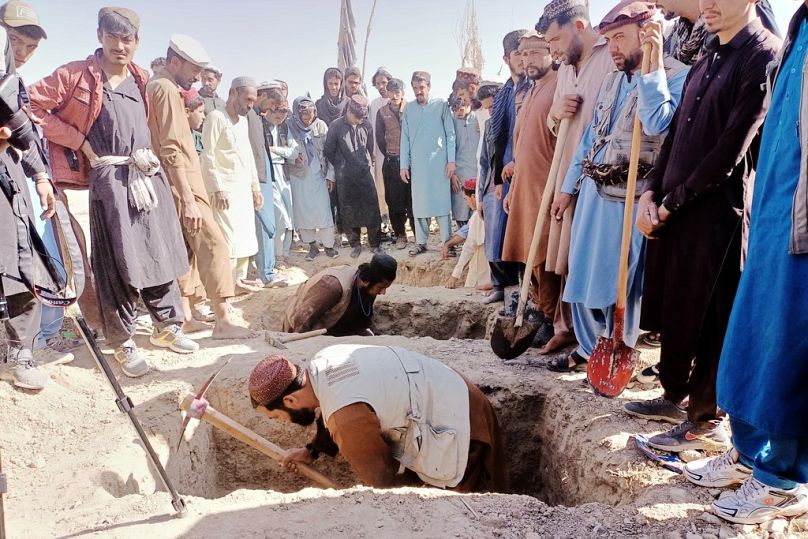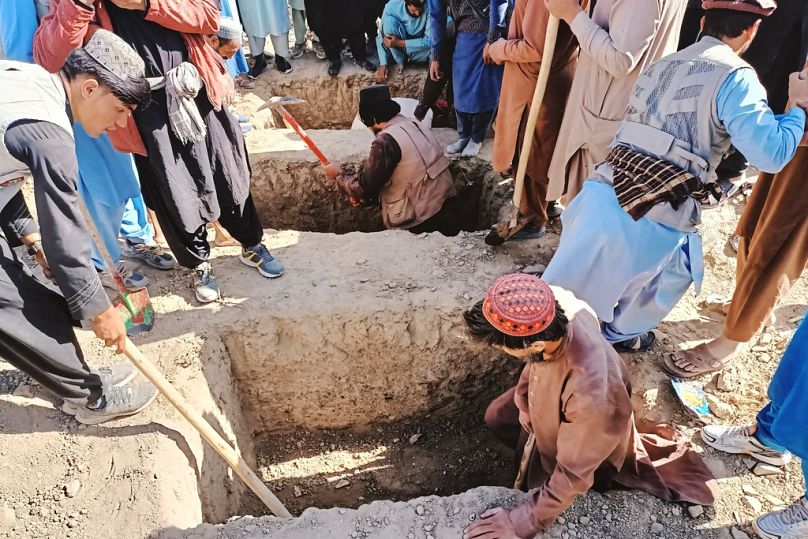The two sides have agreed to hold follow-up talks in Qatar to establish conditions and a framework for lasting peace, bringing an end to a week of deadly cross border skirmishes, which have killed dozens of people.
Afghanistan and Pakistan have agreed to an immediate ceasefire after holding talks with Qatari mediators in Doha, according to Qatar’s Foreign Ministry.
The deal marks an end to a week of cross-border fighting that has killed dozens of people and injured hundreds more, in what was the deadliest crisis between the two countries in several years.
The two sides have agreed to establish mechanisms to consolidate lasting peace and stability, and to hold follow-up talks in the coming days to ensure the sustainability of the truce, the Qatari statement said.
The statement added that Turkish negotiators also contributed to brokering this deal.
Violence has escalated between the neighbours since earlier this month, with each country saying they were responding to aggression from the other. Afghanistan denies harbouring militants who carry out attacks in border areas, a key area of concern for Islamabad.
Pakistan has been grappling with a surge in militancy in its western border areas with Afghanistan since 2021, after the Taliban seized control and returned to power in Afghanistan.
Fighting has threatened to further destabilise a region where groups including the Islamic State group and al-Qaeda are trying to resurface.
On Friday, just hours after the expiration of a 48-hour truce, Pakistan struck across the border, targeting militants belonging to the Hafiz Gul Bahadur group, in the eastern Afghan province of Paktika.
Islamabad claimed the attacks on at least two districts in the Afghan province neutralised dozens of armed fighters, and killed no civilians.
Officials added that the strikes were in response to a suicide bombing of a security forces compound in Mir Ali in Pakistan’s western Khyber Pakhtunkhwa province a day earlier.
Taliban officials however say the aerial raids killed at least 10 civilians, including women, children and local cricket players who had been competing in a match in close proximity to the sites targeted.
The attacks prompted the national cricket board to boycott an upcoming competition in Pakistan. Cricket's global governing body, the International Cricket Council, said it was “saddened and appalled by the tragic deaths of three young and promising Afghan" players.
Zabihullah Mujahid, the Taliban government’s chief spokesman, had earlier criticised the “repeated crimes of Pakistani forces and the violation of Afghanistan’s sovereignty.”
Such acts were deemed provocative and viewed as “deliberate attempts” to prolong the conflict, he added.
Pakistan's army chief, Asim Munir, urged Afghans to choose “mutual security over perpetual violence and progress over hardline obscurantism.”
“The Taliban must rein in the proxies who have sanctuaries in Afghanistan,” he told an audience at the Pakistan Military Academy in Kakul, Khyber Pakhtunkhwa, as high-level delegations from both countries met in the Qatari capital on Saturday for the negotiations.
The two countries share a more than 2,600 kilometre border, known as the Durand Line, but Afghanistan has never recognised it, viewing it as a historical issue imposed during British colonial rule, although it functions as the de facto border in practice.
Kabul has rejected the borders, saying it was imposed on them under duress in 1893 and divides Pashtun tribes who inhabit western Pakistan and eastern Afghanistan.
It instead recognises the 1947 borders, which disputes large swathes of Pakistani land, and has resulted in various cross border skirmishes over the decades, led by local militant groups, over control and territorial disputes.














